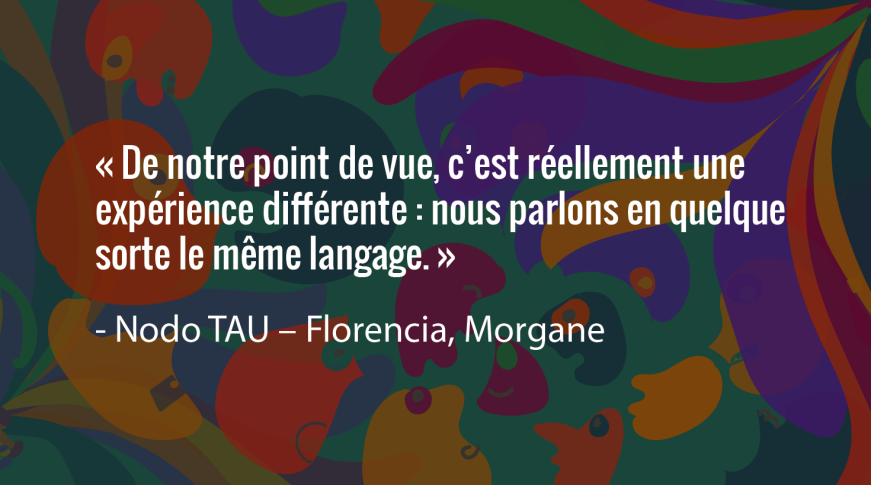
How are APC members improving their communities' lives? In this column we're highlighting stories of impact and change by our members, supported by APC subgranting. In Argentina, Nodo TAU has made meaningful contributions to environmental sustainability movements by giving local communities access to e-waste recycling.
Committed to the fight against poverty and social exclusion, the protection of the environment and the defence of human and social rights, APC member Nodo TAU is dedicated to exploring ways to use positive technological developments to support an egalitarian and democratic society. Their groundbreaking work on e-waste recycling in Argentina has brought about significant changes in the region, and the process has involved numerous approaches, campaigns and methods of engagement.
For an active civil society organisation like Nodo TAU, one of the important advantages of having access to small grants means that they have been able to develop several different projects, giving them the boost they need to kick off a key research project, for example, or exchange with others doing similar work.
Bringing e-waste recycling to the community
For Nodo TAU, an APC subgrant was a valuable resource in broadening their knowledge of the process of e-waste recycling and furthermore developing an understanding of the market for e-waste in Argentina. According to Florencia Roveri, who works on policy and communication at Nodo TAU, “We had already set up a workshop but wanted to build on this.”
In Argentina, a country that “generates around 8.4 kg of e-waste per person annually, higher than the world average and the average in the region” according to Nodo TAU’s report in the 2020 edition of Global Information Society Watch (GISWatch), exploring sustainable options for e-waste disposal is critical in confronting the climate crisis.
Building on this work gave Nodo TAU the resources and insight to lobby the city of Rosario, Argentina, to implement an e-waste recycling system, a process that the municipality had been previously reluctant to adopt. In this way, they were able to make their work, interests and activism more concrete and move them into a stage of action, creating impact in Argentina and beyond. As Roveri noted, subgranting allowed Nodo TAU to convey “our ideas, our vision, our desires to people who understand the field in which we are working.”
Making connections for greater impact
Often small organisations share common goals and interests with others working in their research areas, but limited funding creates obstacles to collaboration and makes it difficult to build bridges in order to learn from each other’s experiences. For example, APC member Pangea is another organisation that has a deep interest in e-waste recycling and has done a considerable amount of work with the right-to-repair and reuse movements. Based in Barcelona, they are an ocean away from Nodo TAU. Using APC’s Member Exchange and Travel Fund, Nodo TAU was able to meet with Pangea in Spain and collaborate on their approaches to environmental sustainability.
In turn, Pangea has also received subgranting funds from APC, thereby strengthening the network of support among members. In the words of Pangea’s Leandro Navarro, “Our visibility in the local and global scope, in terms of environmental impact of ICTs, is clearly improved, and in specific terms, it has expanded the number and quality of our activities and partnerships.” Thus the ripple effect among recipients facilitated by subgranting means that their impact is amplified significantly.
Training civil society in internet rights
In addition to their pivotal work on e-waste recycling, Nodo TAU has also been able to put subgrant funds to important use by implementing a series of trainings on digital rights in Argentina. In 2016, they launched a campaign to help activists, journalists and local government representatives develop their capacity and understanding of internet rights. In this undertaking, they adapted APC’s Internet Rights Charter into trainings that empowered people to make an impact on their communities by engaging with internet rights issues and advocating for meaningful change.
Developing this kind of local initiative and connecting with journalists and other community members is invaluable for exposure and awareness raising. And where larger funders may not be interested in investing in grassroots movements, “subgranting offers freedom and flexibility,” Roveri noted. “From our perspective, it is really a different experience – in a sense we speak the same language.”
Striving for sustainability
In their ongoing commitment to environmental sustainability, one of the key elements in maintaining momentum inevitably comes from financial sustainability. Nodo TAU’s work on e-waste recycling has evolved over the years to the point where the project has become sustainable. Having financial infusions through small grants has been one factor in this achievement, and in parallel the facility of reporting has allowed the organisation to focus their attention on the project. The support of a network is also a key ingredient to success, one that APC values and nourishes. As Roveri affirmed, “It has a particular dynamic because we all know each other. This is particular to the relationship we share in the network.”
This piece is a version of a story highlighted in Continuing the conversation: Lessons from APC subgranting, a report that presents the findings of interviews and surveys of APC members and partners who were recipients of funding through its core subgranting programme, supported by Sida, and of subgrants offered through other APC projects and staff working on subgranting in the organisation.
Did this story inspire you to plant seeds of change in your community? Share your story with us at communications@apc.org